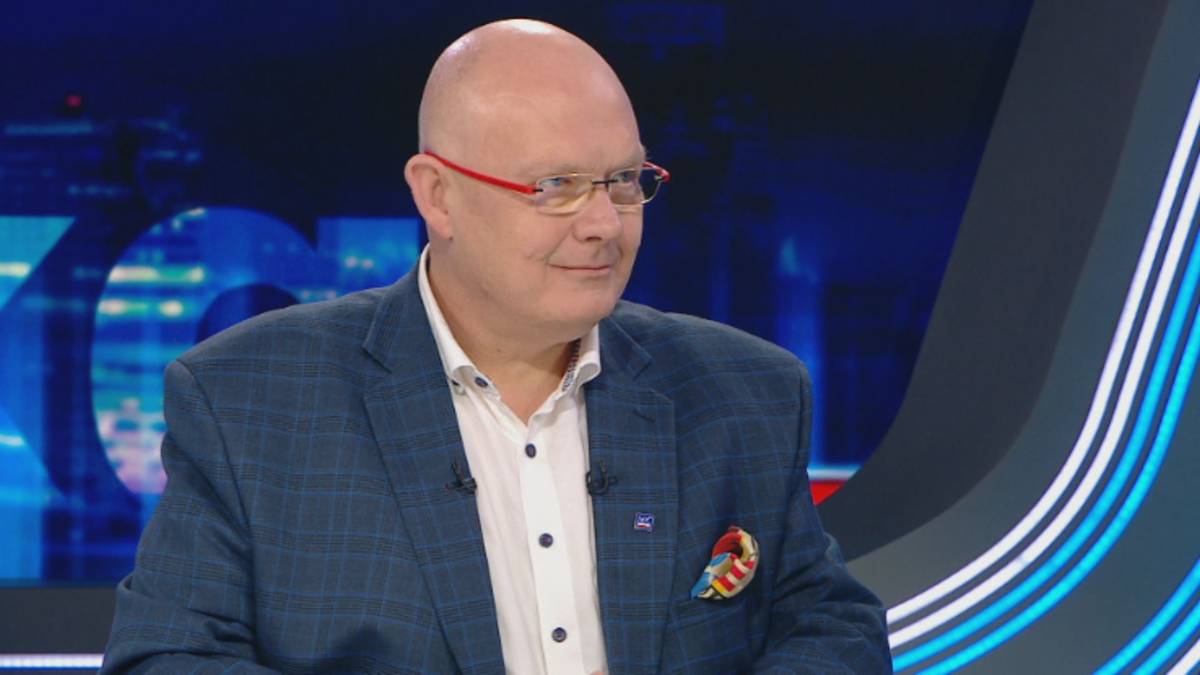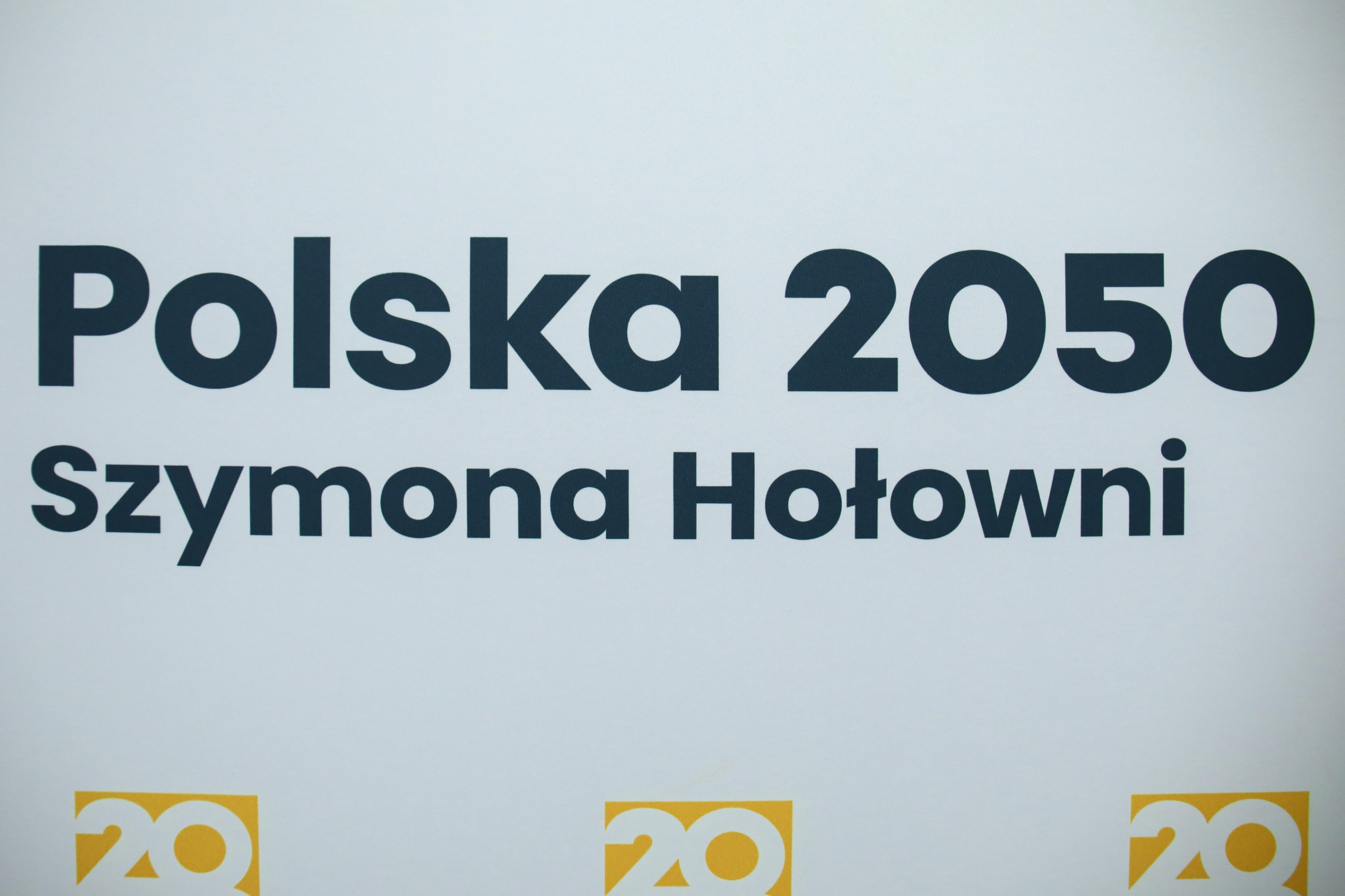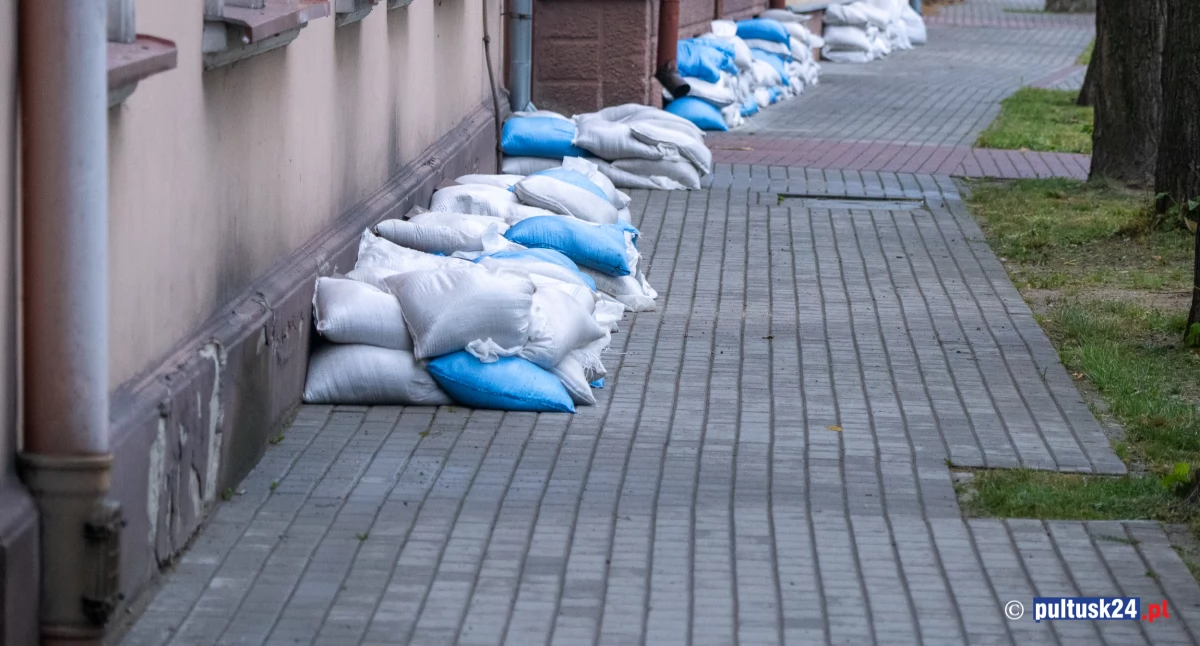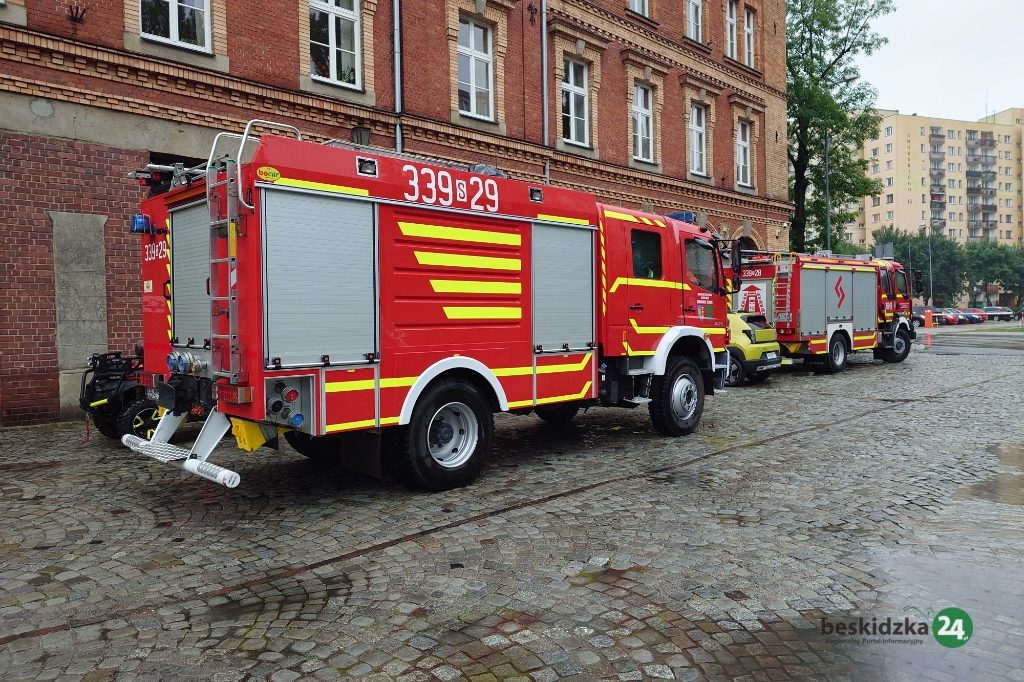I would like to call on the Church of God in Krakow and in Poland to have genuine and effective unity; unity which is based on supernatural reasons, not only on human reasons, so that the mission, received from the Divine Founder, can be carried out effectively and effectively, and be a seed of consent in today's society and world, which are so polarized and conflicted," said Archbishop Antonio Guido Filipazi, Apostolic nuncio in Poland, during the celebration of St Stanislaus at the Altar of the 3 Millenniums at the stone in Krakow.
A conventional procession in honor of St. Stanislaus Bishop and Martyr, the main patron of Poland passed from Wawel Cathedral to Skałka today, where the Holy Mass at the Altar of the 3 Millenniums was concelebrated.
At the beginning of the Mass, Archbishop Marek Jędraszewski recalled that 770 years ago, precisely 8 May 1254, for the first time at the grave of St Stanislaus, canonized only 8 months earlier, the bishops and princes of divided territory Poland met. “This gathering most likely allowed them to regain the sense of national unity so desired by most Poles and to make efforts to reconstruct this unity and to bring the full Polish land to the regulation of the crowned ruler from the Piast family,” said the Kraków metropolitan, stating that this was done first 41 years later erstwhile Przemysł II became king of Poland. Ultimately, this large desire of a national-political character was sealed in 1320 by the coronation of Prince Władysław Łocket in Wawel Cathedral.
The Archbishop pointed out that the first solemn celebrations of St. Stanislaus's martyrdom raised reflections of a strictly spiritual nature among their participants. These were related to the mystery of the Eucharist, which Christ set out with the words: “This is my body that will be delivered up for you... This cup is the fresh Covenant in my blood, which will be poured out for you... Do this in remembrance of me.” “The martyrdom of Stanislaus, who was murdered in the Church of St. Michael here on the stone during the Holy Mass, had him irresistibly combine the spillage of his blood with the Blood of Christ”, said the Kraków metropolitan, stating that this connection between the martyrdom of St. Stanislaus and the mystery of the Eucharist is experienced in a peculiarly deep way this year, due to the fact that the Eucharistic legislature is taking place in the Archdiocese of Krakow. It will end on 15 June, on the day of the beatification of Fr Michał Rapacz, murdered by Polish communists on 12 May 1946 – present is the 78th anniversary of his martyrdom.
We can besides talk of Fr Michal as a priest of the Eucharist – and not only due to the fact that as a priest he was called and ordained to execute it, but besides due to the fact that before the Blessed Sacrament he spent long hours, besides during the night, praying for his parishioners in Płoki close Trzebina – the archbishop said that the presence of the apostolic nuncio, members of the Polish Episcopate, representatives of the state and local authorities makes the legislature far beyond the framework of the Archdiocese of Krakow.
Archbishop Marek Jędraszewski welcomed Archbishop Antonio Guido Filipazi, the Apostolic Nuncio in Poland, representatives of the Polish Episcopal – Cardinals, Archbishops and Bishops, Paulin Fathers – the hosts of Skałka, representatives of the state and local authorities – deputy chief of the Chancellery of the president of Poland, Piotr Ćwik, the voivode of Małopolskie Krzysztof Jan Klęczar, the marshal of the Lesser Poland Voivodeship Witold Kozłowski, Vice-President of the City Council of Krakow Iwona Chamielec, parliamentarians and MEPs, diplomatic corps, uniform services, superiors of male and female orders, Cracow universities, members of the Chapter, diocesan and spiritual curia, spiritual seminars, banner mails and assistances in regional costumes as well as all pilgrims and worshippers of St. Stanislaus.
While asking the Apostolic Nuncio to preside over the Eucharist, the Metropolitan of Krakow announced her intention: “about the blessing for our homeland, for her to build her social and national life on the inviolable foundations of the Decalogue and both commandments of love, and in peculiar on fact and common respect.” There was besides a prayer for a fair peace for Ukraine, the Holy Land and the full world."
At the time of the homily, Archbishop Antonio Guido Filipazi, pointing out the actuality of the mystery of Jesus' ascension, stated that “first, he brought us salvation; secondly, the Lord Jesus appears in him as our model of life; thirdly, he teaches us that all that Christ has experienced, that we may experience it in him and that he may experience it in us.” Referring to the readings of the Mass, he noted that ascension was the starting point of the missionary improvement of the Church, and St. Paul writes that it is the completion of the plan of salvation, and in this context urges all members of the Church to preserve “the unity of the spirit through the bond of peace” (Eph 3:3).
The Archbishop stated that the ascension draws attention to the interior communion and mission of the Church, which, as John Paul II taught, "are profoundly joined together, permeate and implicate 1 another." “Therefore, I would like to call on the Church of God in Krakow and Poland to bring about genuine and effective unity; unity, which is based on supernatural reasons, and not only people, so that it can be carried out reliably and fruitfully, the mission received from the Divine Founder, and to be a seed of consent in today’s society and world, which are so polarized and conflicted,” encouraged the Apostolic Nuncio in Poland.
In the context of celebrations in honor of St. Stanislaus and the Eucharistic legislature in the Archdiocese of Krakow, the archbishop invited for a brief meditation on the mystery of ascension in relation to the Eucharist and martyrdom. He pointed out that religion in Jesus ’ presence in the Eucharist must be continually revived so that we may take the right attitude toward it. In this context, he encouraged “to make a serious account of the conscience of how we personally, in our communities, in our temples, during the liturgy, behave toward Jesus, the actual God and the actual Man, present in the Sacrament of His Body and Blood.” He stated that the common practice of adoration of the Blessed Sacrament, as well as learning about the content of the Catholic religion concerning this sacrament, helped to deepen his religion in the presence of Jesus in the Eucharist. He pointed out that thanks to the Eucharist, what might seem to be the alienation of Jesus from us after His ascension, in fact begins His "extraordinary, universal and continuous presence." "Let us ask St. Stanislaus to aid us have deep and surviving faith, akin to that which prompted him to live and die for Christ, so that we can truly accept Jesus' presence in the Eucharist," prayed the nuncio.
Reflecting on the mystery of martyrdom, he emphasized that martyrs are especially witnesses of the Lord Jesus. He noted that Fr Michał Rapacz would join this group soon. He stated that Kraków, the Archdiocese and the full of Poland “must thank God for the large gift of the shepherd and martyr”, he besides pointed out that all gift of God requires an answer and that in order for the service to be authentic, they must be imitated. In this context, he encouraged us to ask questions about the quality of the certificate, which we give both individually and as a community. Today, the Christian evidence must be implemented in peculiar by promoting respect for natural law, for example in relation to the beginning and end of human life, matrimony and family. St. Stanislaus besides died for obeying God's commandments, which form part of the natural law, entered into the heart of all man and already known by reason," stressed the archbishop. – Let St. Stanislaus intercede for Poland, Europe and the full world, so that society will be built according to God's plan," he added.
In conclusion, he noted that the Eucharist and martyrdom are besides profoundly linked. “The Eucharist is simply a origin of martyrdom, due to the fact that it is “the right food for the sustaining of Christ’s witnesses.” Furthermore, the Eucharist is simply a model of martyrdom, due to the fact that whoever accepts it must in turn quit his life, just as Christ gave his life to us," stressed the archbishop, stressing that it concerns not only the martyrs, but all Christian who feeds and adores the Sacrifice of Christ in the Eucharist; each baptized must do what the holy martyrs did. – May Saint Stanislaus aid us to draw close to the religion and love of Jesus, who, after ascending to heaven, is always with us in the Eucharist. May we always and everywhere be witnesses of the risen Lord in word and life – Archbishop Antonio Guido Filipazi concluded.
At the end of the liturgy on the Rock, there was a prayer of the messenger of the Witnesses of the Eucharist who were blessed and received crosses to “move people’s hearts with power and desire to come to Mass. Saint and Adoration of the 1 who invites and expects them."
St. Stanisław was born in Szczepanów, in today's Tarnów diocese, around 1030. After his studies in Paris, he was ordained priest, and in 1072 he became bishop of Kraków. As a zealous shepherd, he sought the welfare of the faithful, assisted the poor, and visited the priests of his diocese all year. In 1079, he died of martyrdom, killed by order of King Bolesław the Bold, whom he accused of abuse. It was canonized on 8 September 1253 in Assisi by Pope Innocent IV. On 8 May 1254, a procession was organized for the first time in honor of the holy martyr from Wawel to Skałka, where the bishop of Kraków was murdered. Since 1879, the procession takes place on Sunday to 8 May.
Source: archdiocese.pl
Pache











